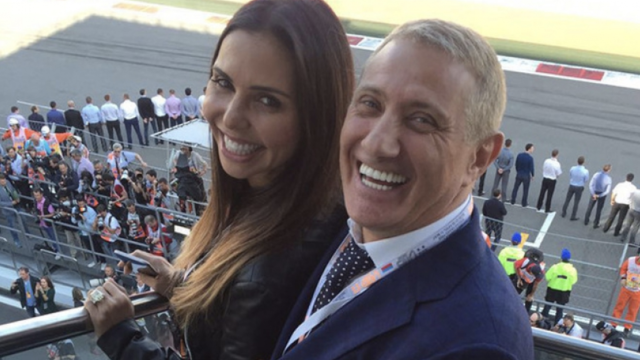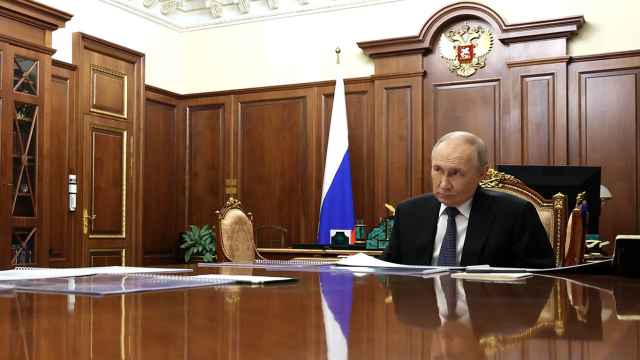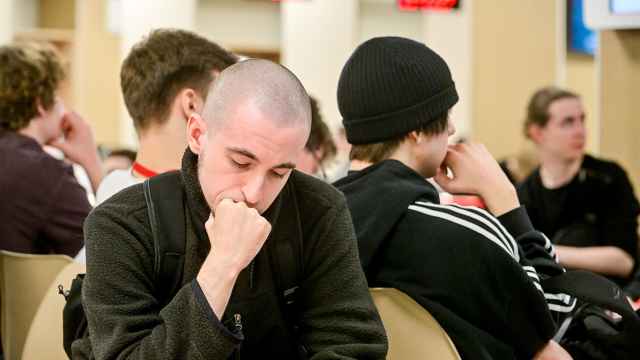President Vladimir Putin is set to meet with prominent opposition politicians at the 10th annual Valdai International Discussion Club, where Russian and foreign experts will discuss diversity, both political and otherwise, in modern Russia.
The forum is being held in the Novgorod region from Sept. 16-19 and will conclude with a discussion between Putin and the other participants, Vedomosti reported.
In attendance will be Yekaterinburg's mayor, Yevgeny Roizman, RPR-Parnas co-chairman Vladimir Ryzhkov, former candidate for the Moscow region's governorship Gennady Gudkov, State Duma Deputy Ilya Ponomaryov from A Just Russia, and media darling and activist Ksenia Sobchak.
Conspicuously absent from the list is opposition-leader Alexei Navalny, who took many by surprise when he claimed 27 percent of the Moscow mayoral vote Sept. 8.
Valdai co-chairman, Sergei Karagnov, said the conference organizers had sent Navalny an invitation, but Navalny's press secretary, Anna Veduta, insisted that no such invitation was received.
In any case, Navalny would not be able to attend as he is required to remain in Moscow due to ongoing legal proceedings, Veduta told Vedomosti.
Putin's spokesman, Dmitry Peskov, seemed to confirm Veduta's statement, saying “information about Navalny's invitation does not correspond with reality.”
Incidentally, one of the topics on the agenda is Russia's electoral system. Gudkov said he would be leading the discussion on that, with a focus on what disgruntled citizens want from the electoral system.
The theme was suggested by the organizers of the event, Gudkov said, adding that he was shocked to have received an invitation and warning that he would not have pleasant things to say about the given topic.
Ponomaryov said he planned to present a report on a similar subject, Moscow's protest environment.
The last meeting between the president and opposition members took place in 2012, when then-President Dmitry Medvedev invited leaders of unregistered parties, including Ryzhkov, Boris Nemtsov and Sergei Udaltsov for a discussion at a political reform. The meeting was most likely convened in response to the rapid growth of the protest movement at that time.
As before, these invitations could be intended to demonstrate the Kremlin's willingness to communicate with all political contingents in an environment where no substantive decisions or promises are made, political analyst Mikhail Vinogradov told Vedomosti.
A Message from The Moscow Times:
Dear readers,
We are facing unprecedented challenges. Russia's Prosecutor General's Office has designated The Moscow Times as an "undesirable" organization, criminalizing our work and putting our staff at risk of prosecution. This follows our earlier unjust labeling as a "foreign agent."
These actions are direct attempts to silence independent journalism in Russia. The authorities claim our work "discredits the decisions of the Russian leadership." We see things differently: we strive to provide accurate, unbiased reporting on Russia.
We, the journalists of The Moscow Times, refuse to be silenced. But to continue our work, we need your help.
Your support, no matter how small, makes a world of difference. If you can, please support us monthly starting from just $2. It's quick to set up, and every contribution makes a significant impact.
By supporting The Moscow Times, you're defending open, independent journalism in the face of repression. Thank you for standing with us.
Remind me later.





